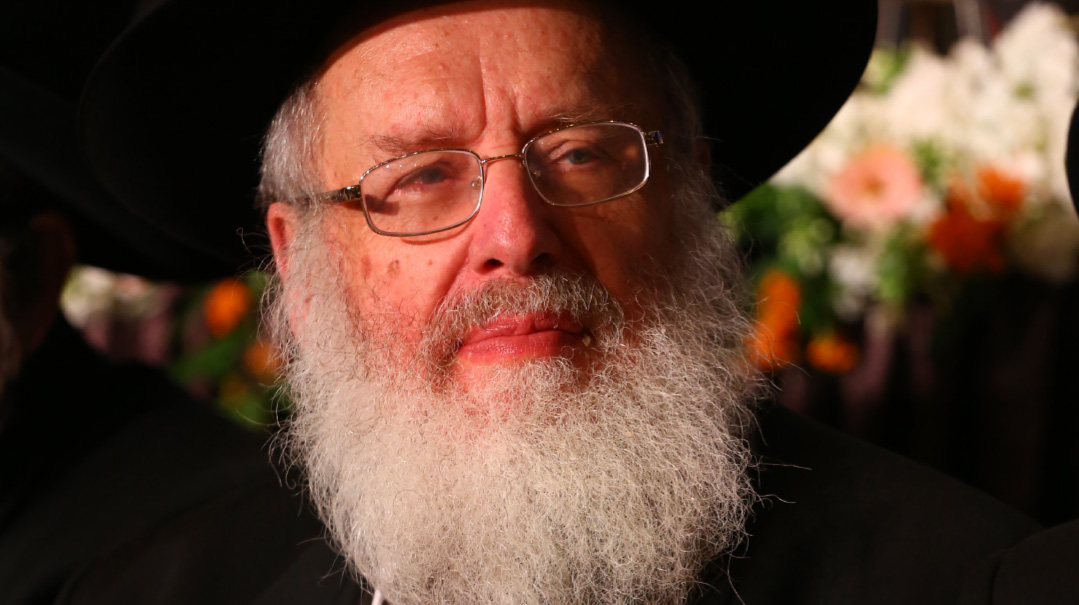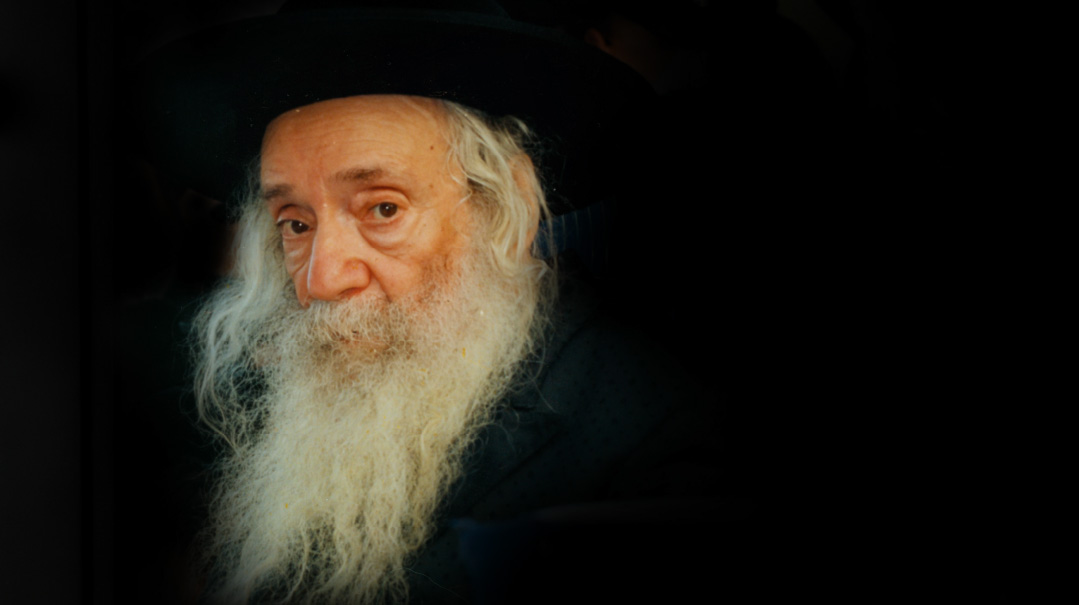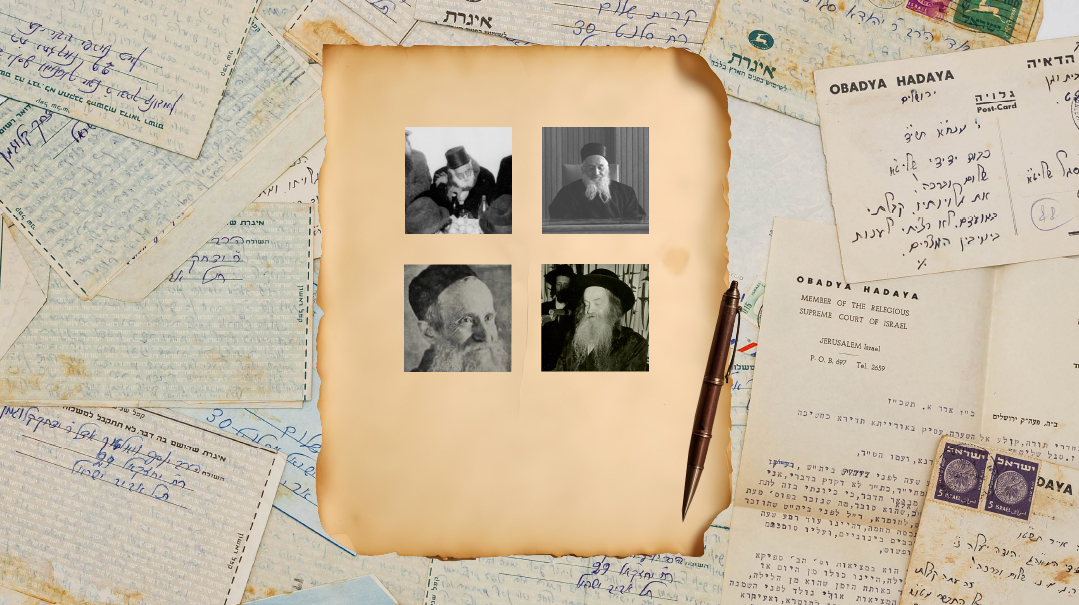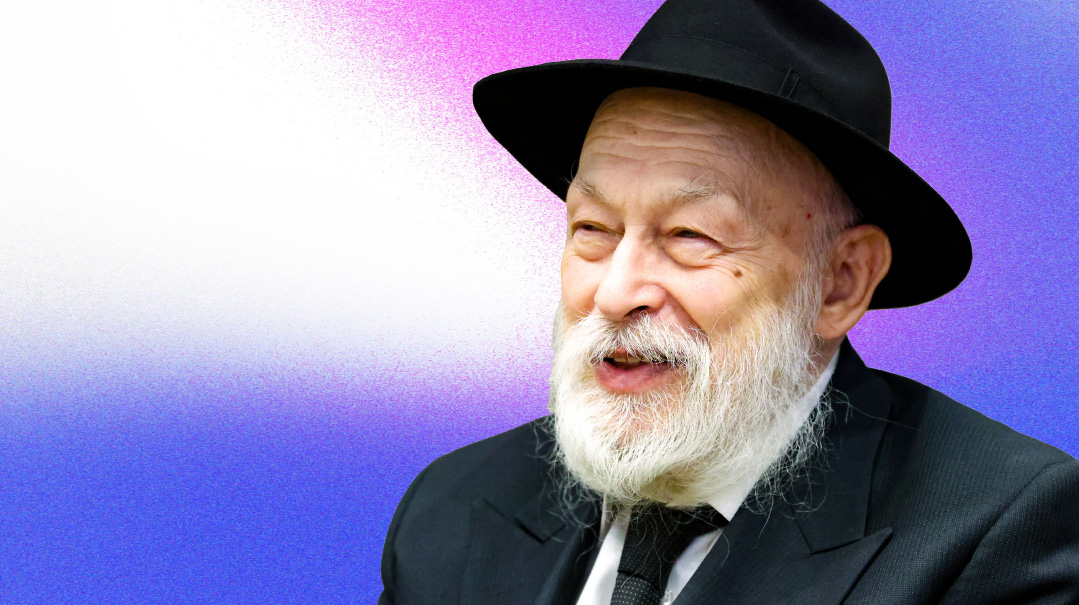Old Verses, New Vibes

Levy Falkowitz replays his journey from showman to soul singer
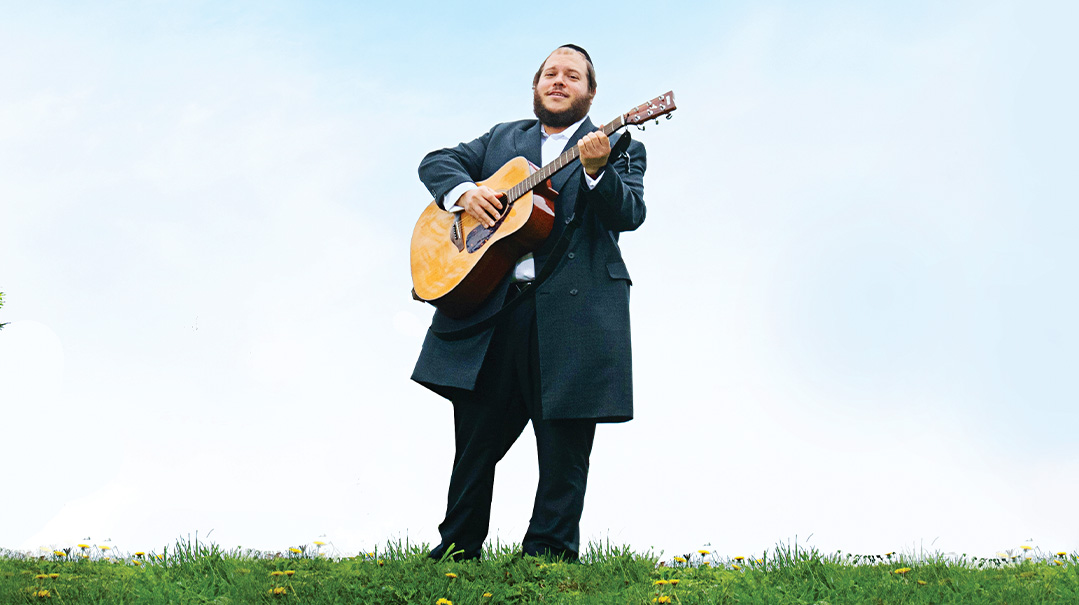
Photos: Jeff Zorabedian
IT was time for the chuppah at a recent wedding in Boro Park. The singer, Levy Falkowitz, stood on the side singing the sublime “Dalet Bavos” composition of the Baal HaTanya, as the chassan, flanked by the candle-bearing unterfirers, was led down the aisle.
Several hours later, the chassan and his friends danced and waved their hands in the air as Falkowitz’s velvety voice belted out “Adir B’meluchah” and other electronically-generated contemporary dance hits. But it was during the meal that I noticed something unusual about this singer, when Falkowitz totally changed gears and captured the crowd with a rendition of a song composed by Reb Yom Tov Ehrlich a”h.
The compositions of Reb Yom Tov, who passed away over 40 years ago, are complex, inspiring… and long. Most would surely be forgotten if not for Reb Yom Tov’s whopping 36 albums. Products of a different era, they carry timeless messages of emunah and simchah, retain a charming level of disdain for luxury (“lukses”), and retell ancient stories in his inimitable style, all wrapped in a delightful Yiddish.
From the comedic to the whimsical to the thought-provoking, the music of Reb Yom Tov Simcha Ehrlich (of whom the Satmar Rebbe once said, “Wherever he goes is Yom Tov, he brings simchah, and he’s erlich”) lives on and still motivates, encourages, and speaks an underlying truth that’s ever-relevant.
The most significant modern barrier to these songs, though, is technology. The melodies were originally etched into the grooves of vinyl records at a Manhattan studio, and were later transferred to cassette tapes. The kings of Jewish music of the last generation invested in re-presenting Reb Yom Tov Ehrlich’s albums to a more contemporary audience, with Mordechai Ben David producing Ich Hob Gevart and Avraham Fried releasing two albums of Yiddishe Otzros. But with the American Jewish music scene having changed over the past two decades, as the Yiddish genre has shifted focus to sound more “chassidish” — i.e., a greater emphasis on Hungarian-accented lyrics — another voice was needed to take Reb Yom Tov’s creations further.
And who better than Levy Falkowitz? A Williamsburg-born Satmar chassid who lives today near Kiryas Joel, the 35-year-old with the golden voice has just produced an album of Reb Yom Tov’s creations that connects to the modern chassidish worlds of Williamsburg and Boro Park the same way they did when Reb Yom Tov Ehrlich’s accordion expanded and contracted to the music of his time.
“The way I look at it,” Falkowitz says, “is that I’m really living off the work that Avraham Fried and MBD did 20 years ago. My career was built around performing those big songs they rescued from oblivion. I sing the Yom Tov Ehrlich songs that they already popularized, and I add my thing.”
While Falkowitz is in high demand at live events around New York and New Jersey, the post-Pesach season is a time to recharge and work on the projects that fall by the wayside when there’s a performance every night. This was a good time to retell his incredible and quite unplanned story of how a Williamsburg kid became one of the most sought-after singers in the chassidish world.
No One Pays a Rookie
Levy is not the only Falkowitz with musical talent. In fact, it was his older brother Yoely, a gifted singer himself, who mentored his younger sibling and introduced him to the industry. Their mutual love for music came from their mother. She was born in 1946 to two Holocaust survivors who married right after the war, and she would write down the songs from the heim that she heard from them.
“That’s how I started getting into Yiddish songs,” Falkowitz says. “The old songs — and this is why I feel connected to Yom Tov Ehrlich’s songs — were funny and full of life. They were about living. While today’s genre pretty much relays the same few messages of chizuk, I’m more of a storyteller. I do all the contemporary things as well because that’s the business, but I relate more to the older types of songs, which were essentially musical stories about life. Somewhere along the way we stopped doing that.”
Levy Yitzchok Falkowitz — he was named for his great-uncle, the previous Tzehlemer Rav — grew up in Williamsburg, or, as Reb Yom Tov would say, “Vilyamsboorg, ah mechaya gohr.” He attended yeshivah in Williamsburg before going to Eretz Yisrael and spending nearly four years — from age 16 until his marriage just before turning 20 — in the Mir, a period for which he credits an “understanding of culture, language, and a feel for international Yiddishkeit.”
Falkowitz’s professional career piggybacked on his brother’s. Yoely was known as the singer in the family, so people assumed that his younger brother also knew how to sing. And when Levy would sing, his last name, popularized by his brother, was his best introduction.
Yoely Falkowitz had gotten into the music industry right after his wedding, released an album, often soloed with Yedidim Choir, and sang at weddings and events. Noting Levy’s natural talents, he started encouraging his younger brother to sing.
“I used to watch Yoely practice,” Levy Falkowitz recalls. “He had a boombox —you put on a tape and sang along with a mic that had echo. I kind of began thinking, ‘Okay, this is interesting.’ And I went with it. My mother had more of an influence on my taste in music, giving me an appreciation of expressing emotion through Yiddish words.
“If you were to define my style,” he adds, “it would probably be a strong appreciation for good melody and multi-layered lyrics. That’s what talks to me.”
Falkowitz made his first foray into professional music in 2007, while in yeshivah in Jerusalem. He was a roommate of Nachman Dreyer, who today is the lead guitarist for the Freilach Orchestra but who then worked for Moshe Roth of what used to be the Menagnim Orchestra. The Satmar Rebbe, Rav Aharon Teitelbaum, was planning a visit to Eretz Yisrael, and they were preparing an album of Satmar niggunim in his honor.
Falkowitz was asked if he could sing a solo. It was a good shidduch — the organizers needed a chassidishe soloist but didn’t want to pay, and he needed a publicity event to cut his teeth on.
“I came into the studio — it was Ruvi Banet of Zemiros studio — and I remember Ruvi sitting there and looking at me, puzzled. He asked Moshe who I was. Moshe tells him, ‘Let him sing. It’ll be fine.’ After my first take, I pull off my headphones, and Ruvi walks right over to me and says, ‘I’m doing this album now with a bunch of singers, it’s called A Wedding Invitation. Would you like to take a few solos?’ I was like, ‘Um… yeah.’ That was my first big album.”
But he still wasn’t getting paid. “Nobody pays a rookie,” he says. But soon enough he got his first paid job — a chasunah in Bnei Brak, which he performed alongside composer Shaya Gross. He was offered $300, quite a nice sum for a wedding singer in Israel back then.
Falkowitz’s wedding debut didn’t go unnoticed. Keyboardist Meir Adler had been tipped off about the young singer; he dashed over to the wedding and approached Levy during the break. “Falkowitz, come here,” he said. “What are your plans? If you stay here, I’m signing you on right now. I’ll be your agent and I’ll get you 100 gigs a year.” But Levy was planning on returning to the United States, so he declined.
Indeed, he returned to New York and launched his musical career, singing at weddings and events. With time, he’d be featured on over 30 albums and would release two of his own. Yet despite the measure of fame he’d achieved while still a bochur, his wife had no idea of it when they first met.
“She found out at the tenoyim that I could sing,” Falkowitz laughs. “She thought it was a little strange, but she’s always been very supportive.” Still, he says, she’s been the bulwark in keeping his professional career from over-encroaching on their private life. When he’s home, he’s a husband and father, and in keeping his priorities grounded, makes sure he leaves the “star” persona outside the door.
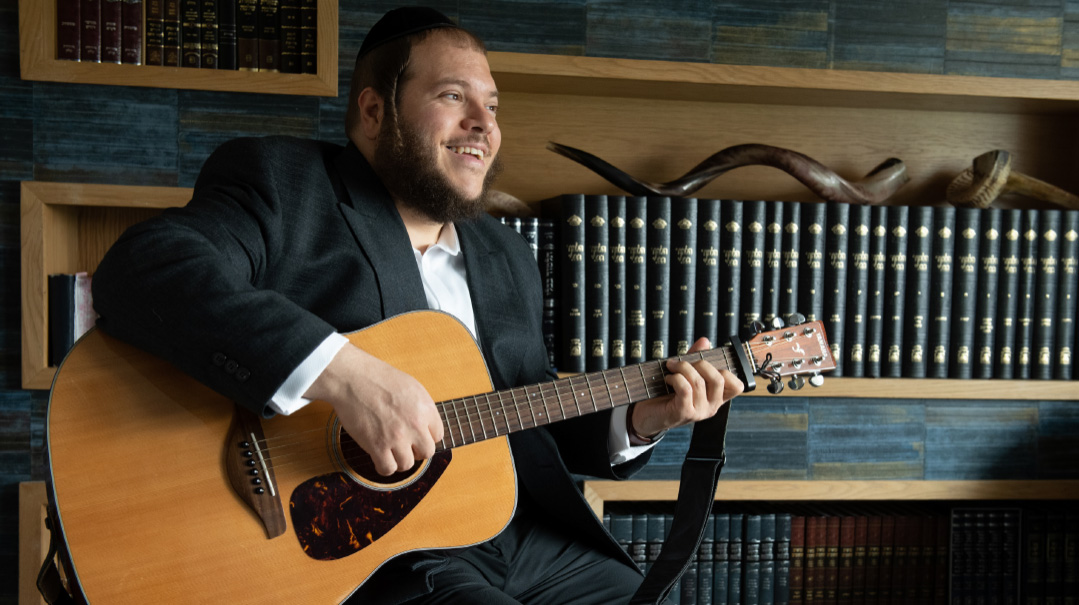
Within the Lines
A few months after his marriage in 2008, Falkowitz received a call from Mendy Hershkowitz, an old friend from yeshivah who was then with Freilach Orchestra.
“Levy,” he said, “we’re looking for a front man.” The band had just launched, and they were looking for a lead singer who would give all of them exposure. At the time, Freilach was trying their hand with various singers, and Falkowitz was with them for about a year. He also began singing with Shira Choir, where he remained during the next three years in order to fill the gaps of the ups and downs in a very competitive business.
“For me it was a really long road,” Falkowitz admits. “Today most singers who have their eye on a singing career start with social media, get themselves out there, and within a year — if they’re good — they should be one of the busier ones. But for me, the first year or two I was making less than $10,000 — a few hundred here, a few hundred there. I was 22 and already had two kids, so I’d do anything that came my way — like Yom Tov davening in L.A. with Shira Choir — anything to pay the bills. ”
For two years, that even included making sandwiches on a restaurant truck in Kiryat Joel, courtesy of his father-in-law who owned the main restaurant in Williamsburg. The sandwich sideline gave him a little more financial wiggle room for voice lessons and travel around the Tri-state area for nightly gigs.
“It took me at least five years to catch my breath, to really figure out what was happening with me, to settle in and find my niche. Everything from those years is a blur — I just kept moving from one project to another, taking whatever opportunity came my way without thinking too much.”
After performing on a dozen albums between 2008 and 2014, Falkowitz released his own debut album Achakeh Lo in 2015. He’d already been catapulted into the limelight two years before with the single “El Hanaar Hazeh Hispalalti,” composed by Shlomo Yehuda Rechnitz. He was one of three soloists to perform the song, along with Moshe Mendlowitz and Motty Steinmetz, and joined by Shira Choir.
While Falkowitz spent a good few years of ups and downs learning about the industry, he says he was also learning about himself and finding his own identity, while being the front man, the singer on stage, and all the ramifications that go along.
“We singers have been flung into a type of shlichus — for some reason we’re looked upon to be spiritual guides to those for whom the regular kehillah connections no longer work,” he says. “It used to be that you had a rebbe, learned a little chassidus, and you felt connected, but today a lot of things have shifted. Kids are falling out of the system, a lot of yungeleit feel disenfranchised, and so heimish singers have become the go-to for some people who want to feel something spiritual.
“And this is a huge challenge, because a lot of times you don’t even know who these people are, yet they are looking to you to give them ruchniyus. The problem is that singers aren’t spiritual leaders — they’re entertainers. And it took me many years to figure out the difference. True, we’re up there on stage or in the hospitals singing songs of chizuk and emunah, but at heart we’re just simple people trying to figure out life ourselves. So we have a very delicate job — we don’t want to let these people down, but we can’t fool them, or ourselves, about where we’re really holding. I know that I’m still working on my own ruchniyus, finding the seforim and the spiritual mashpiim that can help me figure out my place in this world and my tafkid.”
Falkowitz works hard to make sure that he doesn’t get sucked into the “celebrity” culture that might include showy outfits, a departure from chassidish norms, and flamboyant behavior.
“I try to keep my head down, doing music in a very balanced way, pulling the young people in without going over the top and crossing my red lines,” he says.
Where Am I?
Falkowitz is still humbled by some of his previous engagements, like the time he sang in front of the Satmar Rebbe and 10,000 fellow chassidim at a Chof Alef Kislev event eight years ago. He shows me a video of him singing “Mah Ashiv Lashem” at that event. “You see the crowd? It still overwhelms me, but it definitely confirmed my place in the industry.”
Despite his successes, he often feels that he’s still struggling to find a niche in this very competitive arena.
“A lot of singers are confident that they’re in their place. I’m not,” he confesses. “I struggle every day to convince myself that I have what it takes to do this job.” Because of his personal boundaries, and because his musical preferences aren’t always reflective of the commercial trends, he worries that he might not be attuned to the desires of crowd.
“If it were up to me, I would only do productions,” he explains. “A show means doing what I like, and people choosing to come enjoy it if that’s their style as well. But I’ve learned to shift into wedding singing, which is more like being a singing machine for everyone else. You sing this when the chassan and kallah come in, sing that when a rebbe or rosh yeshivah walk in. Then the bochurim walk in and you have to change songs and tempo. It’s like a gabbai in a beis medrash.”
And while the gabbai is skilled at giving out aliyos and assigning amudim to the right people, he sometimes has to double as a therapist, smoothing over the rough edges when shul members are hurt or vulnerable. Falkowitz says that singers have a very similar role.
He tells me stories that his fellow singers share with him, of arguments breaking out when two mechutanim disagree about what sort of music there should be at their children’s simchah, including one particularly rancorous affair when the singer had his microphone grabbed away from him by an unhappy father. And there’s intergenerational conflict too: sometimes the mechutanim want to have fully heimish music at the wedding, but the chassan and his friends are angling for more modern rhythms.
“I tell mechutanim before the chasunah that my profession is singing, not therapy. Sit down together and decide what type of music you want. My job is to serve you. You’re the customer.”
The songs at the chuppah and mitzvah tantz are the backdrop to the most sensitive time for mechutanim. He usually gets requests to sing traditional niggunim — “Kah Echsof,” “Rav Mechel Zlochover’s Niggun,” “Dalet Bavov” — at chuppahs, and niggunim of gratitude and thankfulness at the mitzvah tantz.
For Falkowitz, the wedding beat is a sign of a changing society. Years ago, singers performed mainly at concerts while weddings had bands, with or without a singer. Today, only the top-tier musical artists sing at shows, while every wedding has a singer.
“Can you imagine Avraham Fried doing weddings every night?” Falkowitz asks rhetorically, before answering a definitive no. “That’s because Fried is living off the legacy he’s built over decades. But this just shows how the industry has taken a huge turn,” he explains. “When I came into the business, the big money was in shows. A good singer would perform 20 shows a year, charge $10-12,000 a show, and would make parnassah. Now, even the big singers who can charge $10,000 a night are doing weddings. The biggest names work five times a week.”
Even the albums that singers produce regularly are often just bait to get jobs, he says.
“Singing at weddings is a very competitive place,” he explains. “Albums are supposed to get people attached to your voice, and then apply that to the stage.”
In that sense, his new Yom Tov Ehrlich album is something of a gamble. It’s the farthest thing from wedding music. But what it does have, he’s seen, is staying power. And that’s very rare in today’s here-today, gone-tomorrow music scene.
“I’m not sure where it’s going to take me,” Falkowitz says, “but the feedback I’m getting is that people actually listen to it over and over again.”

As a kid, Levy would copy how his older brother practiced with a boombox and a mic with an echo. Years later, Levy and Yoely would share the stage
Meaningful Music
The Yom Tov Ehrlich album, A Ehrlicheh Lid, is Falkowitz’s third — the songs on his previous ones, Achakeh Lo and Tov Lee, have become staples at weddings, events, and camps. But this one is on a different level, in so many ways.
“I take my responsibility as a public person very seriously,” Falkowitz says, “and that’s one reason I did the Yom Tov Ehrlich album. Because if you listen to the original records, you can sense a very raw Yiddishe flavor, like you’re listening to a rebbe from yesteryear with as much emes and honesty as it gets. You feel the emunah, the non-negotiable emes, but while he never lost the raw message, he gave it over with humor and love. And everything he said back then is still 100 percent relevant. Things don’t really change.”
Falkowitz and his producers chose familiar songs from Ehrlich’s 36 albums, offerings that hold a universal message. “The elements of this album are very interesting and quite unique,” Falkowitz says. “It has a very heimishe feel, yet the production is top-tier and well-polished, both musically and vocally. It’s a very easy listening experience, although it’s serious music.
“I’ve been asking people for feedback,” he continues, “not because I’m looking for compliments, but because I want to hear what’s behind the reaction, the emotion that’s been ignited. What I keep hearing from people are things like, ‘It talks to my neshamah,’ or ‘I relate to the message,’ or ‘It gives me a sense of meaning.’ People are actually living with this album now. They sit in the car and listen to it over and over again. But on the other hand, you won’t be hearing it at weddings, you’re not seeing clips of bochurim dancing to it. It’s living in its own bubble.”
As Falkowitz worked on the album, he found himself drawn to Ehrlich’s original medium: the vinyl record. It’s been over two decades since CDs replaced cassette tapes, but the digital revolution so rapidly drenched the market that the venerable vinyl records whose black round discs were a staple until the 1980s have begun to outsell even CDs. Music lovers are showing a preference for the high-quality sound and tangible connection to the artist that they get by holding a vinyl record, and labels are meeting that demand with a stream of exclusives and special reissues.
“I was considering a vinyl edition with this release, mostly for nostalgia’s sake,” Falkowitz says. But making a vinyl record, he discovered, involves creating a master, which is the metallic plate where the grooves for musical notes are etched. It’s expensive, and as record users remember, it only allows for 40 minutes of playing time. Regretfully, Falkowitz realized vinyl would not be an option for this project.
Still, he tried evoking a whiff of the original Yom Tov Ehrlich flavor on the album’s cover. Imagery was taken from the original covers — an archaic locomotive, an early phonograph, and a sketch of Reb Yom Tov strumming his famous accordion.
“I grew up listening to him,” Falkowitz says, “so I got the feel.”
He shows me some of the dozens of messages and voice notes he’s received.
“Levy, I have to tell you,” read one message written in Yiddish, “such an album I haven’t heard in my life, where I can sit glued to it for three hours and not be able to move away. Thank you, thank you, and again thank you. I hope it is the first of ten parts.”
Another person messaged, “I don’t understand a word but it sounds amazing.”
“I’m blown away, it’s so gorgeous,” another wrote. “Something unique and really beautiful, bringing back old and meaningful music. Probably the best release out there in a long time.”
“I wanted to tell you,” one person wrote, “that my mom is very old-fashioned, she only listens to Moshe Goldman, Yiddish Gems, or Skulen albums. She bought your new album and it’s been playing on repeat.”
He says that a neighbor of his, a 17-year-old bochur, told him, “Levy, I don’t know why you put out this album — kids today listen to DJ music — but from morning to night my sister listens to it, and I’ll be honest, when I listen to it, I feel different.”
When the idea to remake Yom Tov Ehrlich songs was first proposed, Falkowitz admitted, he had no idea how it would work out. Singers produce albums so their songs will be performed at weddings and events. Maybe one in a thousand remains popular while bypassing the simchah scene. He hopes this album will do that too — even though most of the songs are too complex for the simchah scene — and some of them, profound as they are, are ten minutes long.
“I call these legacy albums, similar to the Journeys albums. These are albums that are there for decades. You listen to them when you want to feel nostalgic or when you want to feel connected to some memories.”
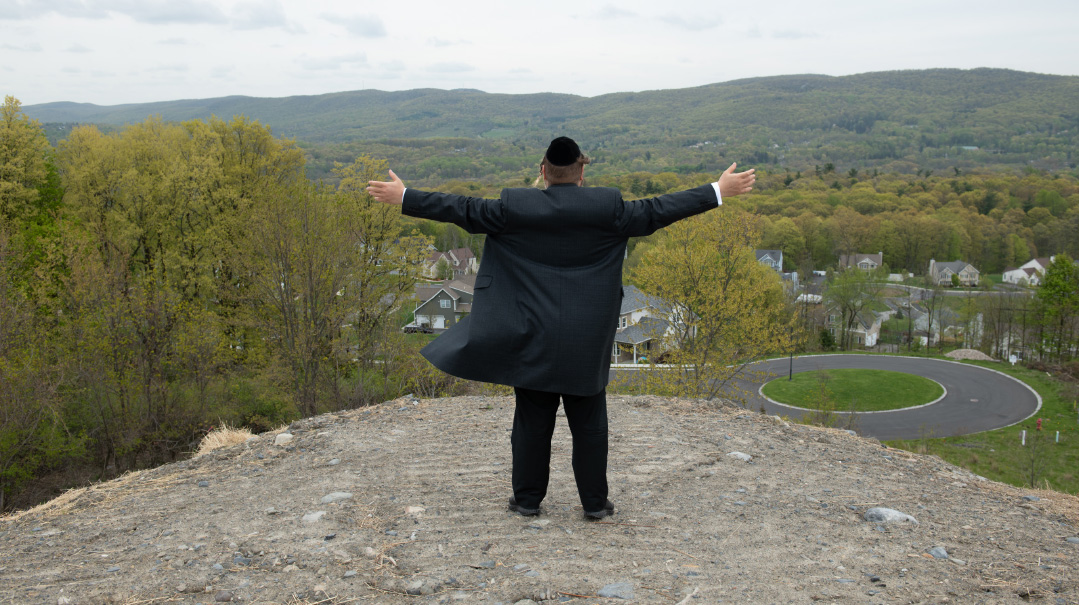
In Woodbury, Levy’s new home, fame and status are left at the gate
No Stopping
While independent projects like A Ehrlicheh Lid might be closer to Levy Falkowitz’s neshamah, he’s not leaving the hard work of nightly wedding gigs so fast. That’s where the parnassah is, and it’s also his personal platform for working on his own middos and finding his real voice.
“Everyone in this industry presents themselves as the image the public wants, whether they’re conscious of it or not,” he says, “so it’s something I’ve had to struggle with. Who am I — an embodiment of the holy words coming out of my mouth? Of the chizuk niggunim for which I’m a conduit? Some singers are very good at this. Regardless of what they really believe or where they’re personally holding, they understand the crowd and what people want to hear. But the role still feels too big for me in some ways.”
Falkowitz recently moved from Kiryas Joel to the neighboring hamlet of Woodbury, a close community of about 200 families where fame and status is left at the gate. “I walk into shul and no one asks me about my business — here I’m just a regular guy. And that’s how it should be,” he says.
Still, he’s grateful that he has full-time work, and even made a decision to leave other interests behind for the time being, because it just wasn’t working together with the gigs.
“I tried for a while to do a few other things — construction, financial investments, other projects,” he admits, “but I noticed that the days I had a meeting, I’d show up to the wedding at night washed out. Like I had 50 percent less energy to push through the night, and when I was booked night after night, it was unsustainable. So I made a decision to put my kochos exclusively into the singing. From time to time I get some projects, but I try to manage them so that they don’t detract from my wedding gigs.
“Baruch Hashem, singers who work full-time can make a nice parnassah. I can’t complain. But this is the kind of business that doesn’t stop, where you have to gather your strength every day and go out and do the job over and over again. And there’s no getting lazy — you have to keep learning songs, stay on top of the industry, look at the trends, think forward to the next project. People might think it’s all glitz and glitter, but in reality, it’s both mental and physical effort, and it never, ever stops. Because if you get too comfortable, it catches up to you and within a year you’ll no longer be relevant.”
But most importantly for Levy Falkowitz, singing is a platform for his own growth.
“Of course, there’s the technical part, of always being in the zone musically, staying on top of the industry, and the avodah of keeping up vocally, which means making sure that you’re physically healthy.
“But the real avodah goes much further. When a singer walks into a hall, no one wants your baggage. They want you ‘on,’ they want to see that shining star, and don’t really care or feel compassion if you had a bad day. So this is a big part of my spiritual work: to look at the positive, to focus on gratitude, to try for kindness to myself and the people around me, to handle irritating people with care and realize they just want attention and deserve sensitivity — all this is part and parcel of the work.”
Falkowitz does not believe singers should have a “message for Klal Yisrael.” They are entertainers and not mashpiim. But he does have one small, hard-won piece of advice.
“Be yourself,” he suggests. “Find your inner talent and believe in it. It’s not easy today, especially with the flood of digital media making everyone feel like they’re nobodies. I know. I’ve been on the journey for years to find my voice. It took a while, but then I found me.”
Rachel Ginsberg contributed to this report.
(Originally featured in Mishpacha, Issue 959)
Oops! We could not locate your form.


